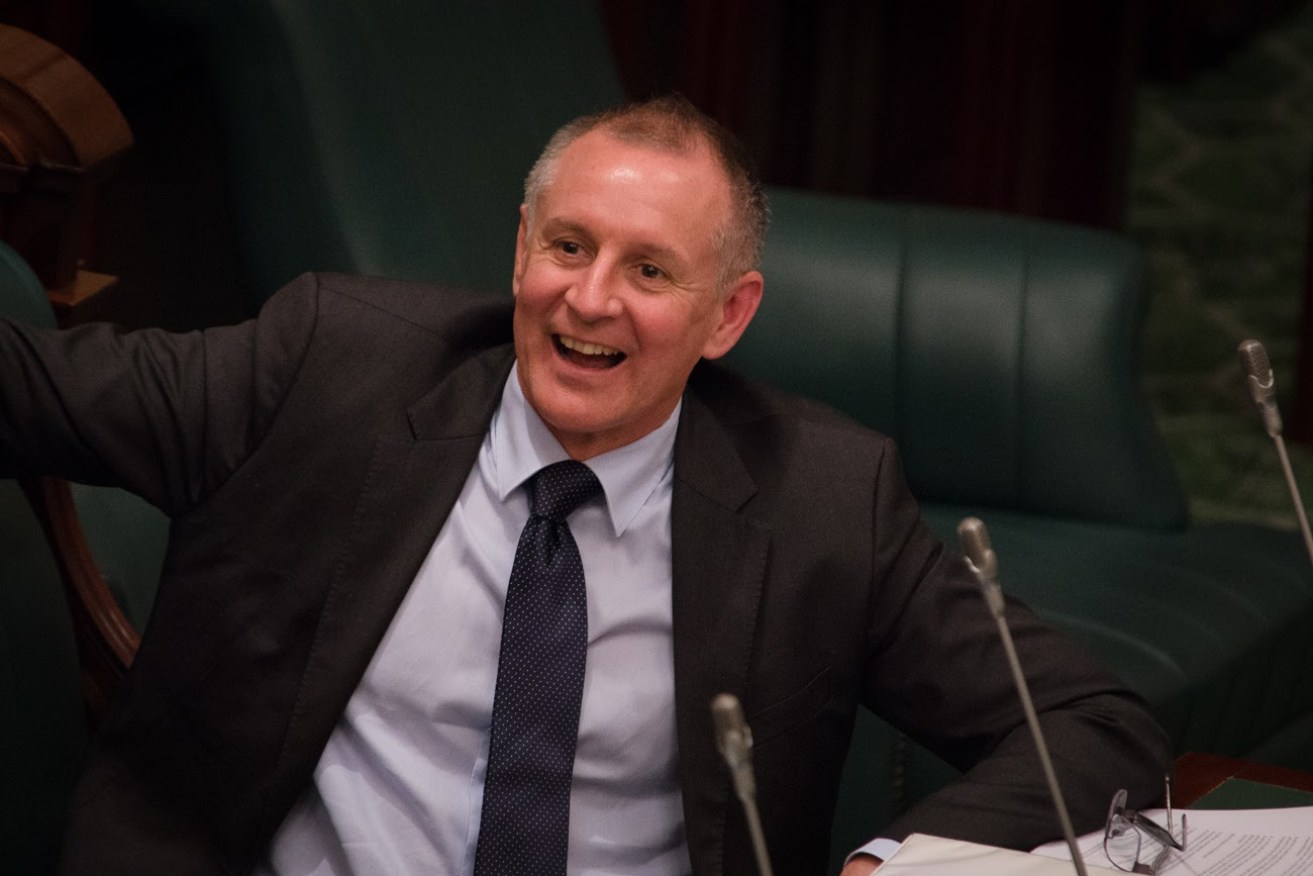No future for Jay’s Future Fund
Jay Weatherill’s long-promised Future Fund appears dead and buried, with the Premier telling parliament there was “no obvious windfall” that would justify the measure in the short-term.

Jay Weatherill promised a Future Fund as a key priority in 2012. Photo: Nat Rogers / InDaily
Weatherill effectively took the plan – intended to stockpile cash from mining royalty revenues to disseminate on key spending priorities – off the table during the opening session of Budget Estimates today, opting instead to pay down debt as he warned it would be “an extraordinary achievement” if the state managed to achieve its projected modest employment growth in the face of fundamental economic restructure.
“We’ll be running very fast just to stay still,” he said, alluding to maintaining the state’s current nation-lagging unemployment rate of seven per cent.
“To be able to achieve gains will of course be an even bigger challenge.”
Weatherill first promised the fund as one of his primary priorities for action in 2012, saying at the time it would be “a number of years before the surpluses arising from [mining activity] become available to us [so] it is essential that we plan now for wise investment”. It was spruiked as potentially amassing savings of $500 million by 2020.
In last year’s estimates, the Premier said the bill to establish the fund had been drafted “and will be introduced into the parliament later” in 2015, with payments to be made “when the budget is in surplus”.
“There has not been a need to do that because we have not been in surplus until now,” he said.
However, under questioning from Opposition Leader Steven Marshall today, Weatherill conceded the fund was all but off the agenda, despite this month’s state budget showing a surplus for every year of the forward estimates.
The surplus has to be of a certain quality and type before a contribution is made into the Future Fund
“Obviously, the Future Fund consideration has a certain test associated with it – it is only when the surplus reaches a certain level that the excess funds will be applied to a Future Fund,” Weatherill told parliament.
“The economic circumstances that face this state at the moment mean that there is no obvious windfall that is associated with the projected increases in revenues associated with economic activity.”
Asked by Marshall whether the fund was unviable because the surplus was achieved only through the one-off sale of the Motor Accident Commission’s assets, Weatherill said: “No, I do not accept that analysis. We have achieved a surplus.”
“Then why have you not set up the Future Fund?” asked Marshall.
“Because that is not the only test for the Future Fund,” Weatherill replied.
“The surplus has to be of a certain quality and type before a contribution is made into the Future Fund. There is a formula that we have laid out where, obviously, the circumstances do not pertain that would lead to the creation of the Future Fund.”
The Premier said “the sensible step in the short-term is to pay down government debt associated with the surplus that we have created”.
Shadow Treasurer Rob Lucas told InDaily the concession amounted to “yet another broken promise from Jay Weatherill”.
“He promised when the budget was in surplus there would be a Future Fund, and more recently promised to legislate for it,” Lucas said.
“He’s not delivered on that commitment.”
Lucas said the Opposition had not “locked ourselves in to whether we’d support” any such legislation, “because we’d like to see the detail of it”.
Weatherill argued that there was discussion in the recent Nuclear Fuel Cycle Royal Commission about establishing a separate fund with any proceeds from a prospective high-level nuclear waste dump – “should the state wish to involve itself in a nuclear fuel cycle waste facility”
“But obviously [the establishment of a Future Fund] has become less urgent because the surplus funds have not risen to a level where there would be a contribution, necessarily, to such fund,” he said.
The question of whether the waste dump even proceeds is currently the subject of fervent community debate, with the Premier raising the spectre of the recent Brexit vote to justify his Citizens’ Jury model of public engagement.
“The recent Brexit vote in Britain demonstrated what happens when citizens are asked to deal with a complex and far-reaching matter in a one-off, yes-or-no vote,” he told the estimates hearing.
“There was ignorance, confusion, crude and over-simplified public debate and – once the result was known – some regret among voters that they’d not fully explored the issue and perhaps made a hasty, uninformed decision.
“I think there are some basic rules governments should follow when asking citizens to ‘work through’ an issue to reach a resolution.”
He said “it’s not surprising that citizens feel fearful” about the current economic and social challenges facing SA and the world, and argued juries lead “to sounder and more responsive decisions”.
He again hosed down calls for a referendum on the nuclear issue, arguing it “wouldn’t provide the level of nuance that’s essentially necessary in this area”.
“It tends to close down public debate rather than allow it to be developed.”




